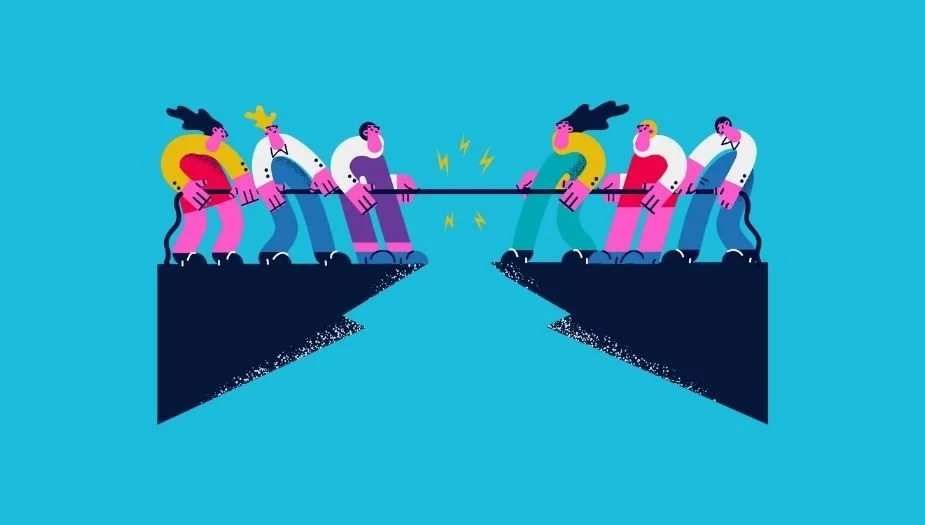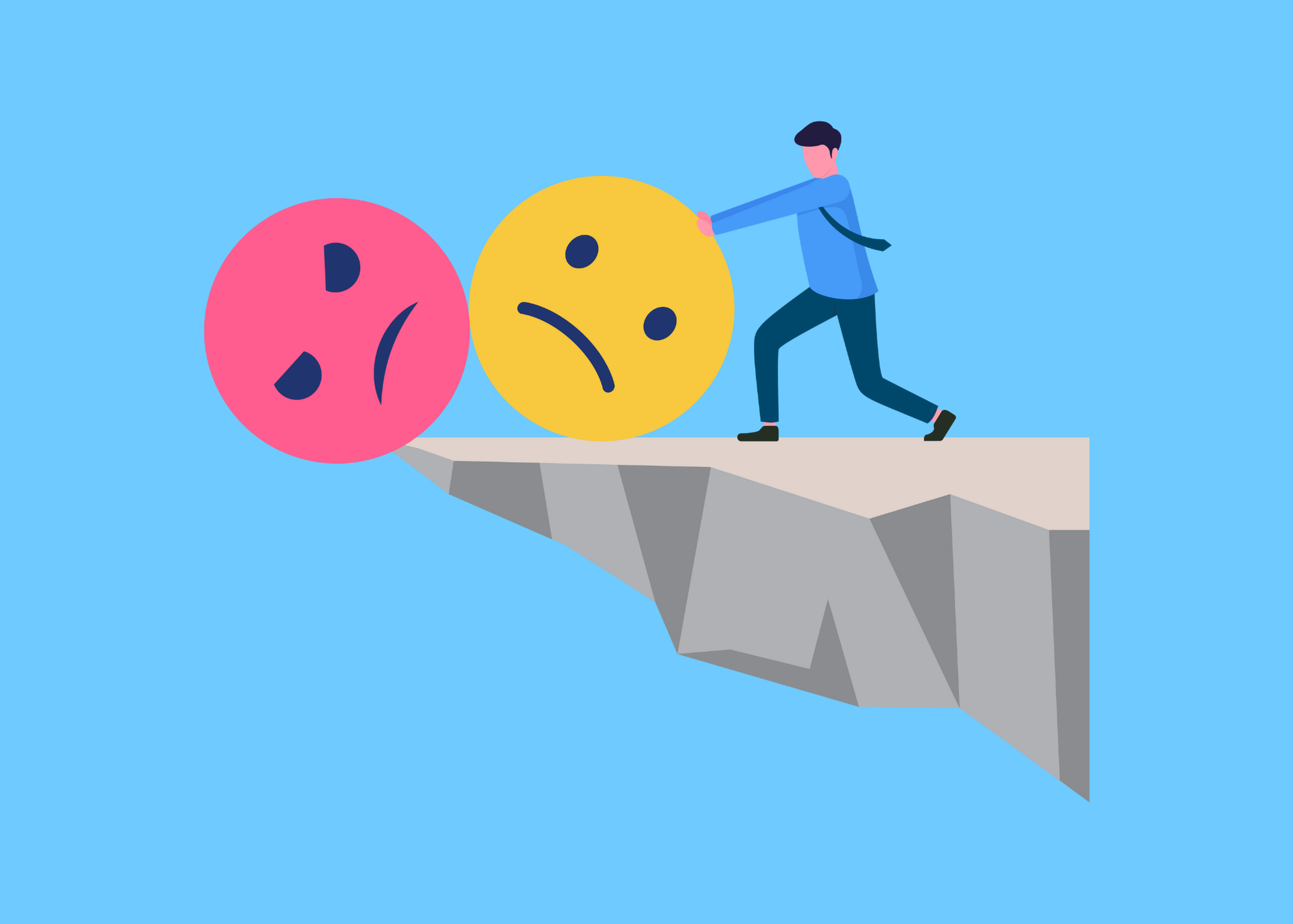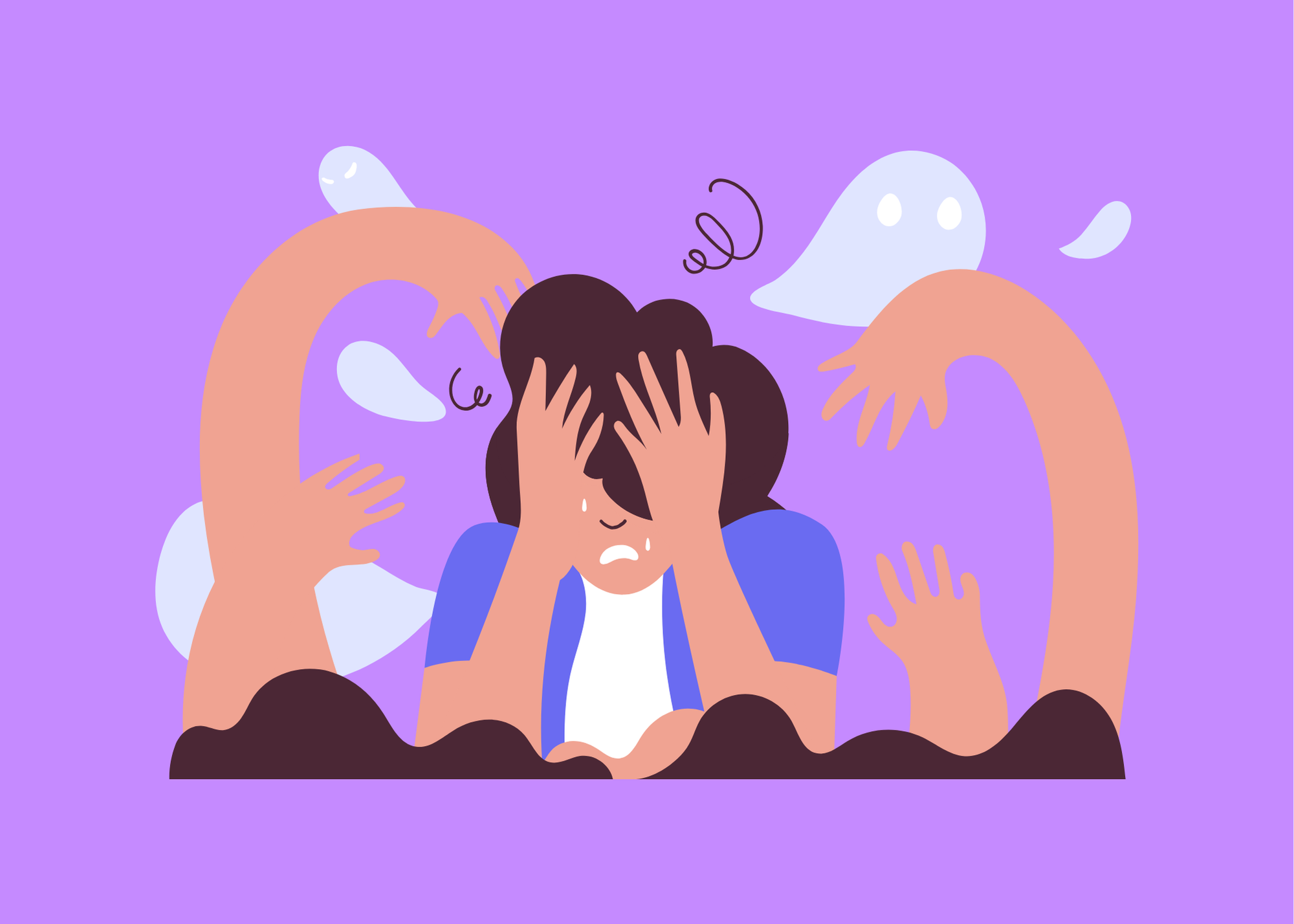Cognitive Dissonance: When Your Brain Battles Itself With Conflicting Beliefs
Ever Feel Like You're Arguing with Yourself?
You say you want to eat healthier, but you grab takeout again. You know you should leave a toxic job, but you stay. You promise yourself you’ll start going to bed earlier, yet you’re still doom-scrolling at midnight.
Why? Because your brain is at war with itself.
That internal tug-of-war? That’s cognitive dissonance in action.
What Is Cognitive Dissonance?
Cognitive dissonance is the psychological discomfort we feel when our actions, beliefs, or values contradict each other. It’s the mental friction between what we think we should do and what we actually do.
Examples:
You value health, but you skip workouts and eat junk food.
You consider yourself financially responsible, but you keep racking up credit card debt.
You believe in work-life balance, but you can’t stop answering emails at 10 PM.
When these contradictions happen, our brain scrambles to resolve the conflict—either by changing our behavior, adjusting our beliefs, or making excuses to justify our actions.
The Science Behind Cognitive Dissonance
Your brain craves consistency. When conflicting thoughts or actions arise, it triggers stress in the prefrontal cortex—your logical thinking center. This stress makes us uncomfortable, so we try to fix it by:
Changing our behavior (e.g., actually eating healthier to align with our values).
Shifting our beliefs (e.g., convincing ourselves that “one more cheat meal won’t hurt”).
Justifying our choices (e.g., “I deserve this because today was stressful”).
Under stress and burnout, cognitive dissonance worsens because the logical part of your brain (prefrontal cortex) is exhausted, making emotional justifications easier and logical change harder.
How Cognitive Dissonance Shows Up in Stressed, Busy Professionals
If you’re juggling work, family, and personal goals, cognitive dissonance is likely a daily battle. Here’s where it tends to show up:
1. Career Decisions
Staying in a job you hate because “it’s secure.”
Telling yourself you’re passionate about work while feeling burned out.
Rationalizing overworking as “necessary” while sacrificing your health.
2. Health and Wellness
Saying you want more energy but skipping exercise and sleep.
Eating out constantly while telling yourself you’re “too busy” to cook.
Knowing stress is harming you but not taking breaks.
3. Financial Choices
Saying you want financial freedom but impulse spending.
Avoiding looking at your credit card statement because it’s stressful.
Justifying bad investments because admitting a mistake feels worse.
4. Relationships and Social Life
Staying in friendships or relationships that drain you because “it’s not that bad.”
Scrolling social media for connection while feeling lonelier.
Avoiding difficult conversations while claiming to value honesty.
How to Overcome Cognitive Dissonance
If you’re stuck in this cycle, don’t panic—awareness is the first step. Here’s how to break free:
1. Name the Discomfort
Ask yourself:
What contradiction is making me uncomfortable?
What do I believe, and how am I acting against it?
What justifications am I using?
Awareness reduces the power of cognitive dissonance. Once you see the pattern, you can change it.
2. Re-Evaluate Your Beliefs and Priorities
Are your current actions aligned with what you actually want?
Do you need to adjust your beliefs to be more realistic?
Are you holding onto outdated ideas that no longer serve you?
Example: If you tell yourself you value free time but always overcommit, you might need to redefine success.
3. Take Small, Aligned Actions
Massive change isn’t necessary. Start small:
If you want better health, drink more water today.
If you value financial security, review one bank statement.
If you want better work-life balance, set one boundary this week.
Small actions create new habits, reducing the internal conflict.
4. Challenge Your Justifications
When you catch yourself making excuses, pause and ask:
Is this really true?
Am I avoiding discomfort?
What would happen if I took a different approach?
Example: Instead of saying, “I don’t have time to work out,” try, “How can I move for just 5 minutes today?”
5. Practice Self-Compassion
Cognitive dissonance isn’t a sign of failure—it’s a sign of growth. Instead of beating yourself up, acknowledge the struggle and adjust gradually.
Change happens in small, imperfect steps.
Final Thoughts: Aligning Your Actions with Your Values
Cognitive dissonance is part of being human. It only becomes a problem when we ignore it and let it run our lives. By recognizing where you feel internal conflict, questioning your justifications, and taking small, meaningful actions, you can create alignment between what you believe and how you live.
The goal isn’t to eliminate discomfort—it’s to use it as a guide toward better decisions.
So, where in your life is your brain battling itself? And what’s one small step you can take today to realign?
Need Help? When you lead with values, you lead with purpose.
You don’t need to do more. You need to connect deeper—with yourself and what you stand for.
💡 Let’s clarify what drives you. Book your free 20-minute consult today.
Article References
The sources cited in the article:
Verywell Mind (VM). “Cognitive Dissonance and the Discomfort of Holding Conflicting Beliefs.” VM - Cognitive Dissonance
healthline. “5 Everyday Examples of Cognitive Dissonance.” healthline - 5 Everyday Examples of Cognitive Dissonance
The Decision Lab “Cognitive Dissonance: Why is it So Hard to Change Someone’s Beliefs?.” Decision Lab - Cognitive Dissonance
Cleveland Clinic (CC). “Signs You’re Struggling with Cognitive Dissonance.” CC - Signs You’re Struggling with Cognitive Dissonance
Psychology Today (PT). “The Choice Paradox.” PT - The Choice Paradox
WebMD. “What to Know About Cognitive Dissonance.” WebMD - What to Know About Cognitive Dissonance






